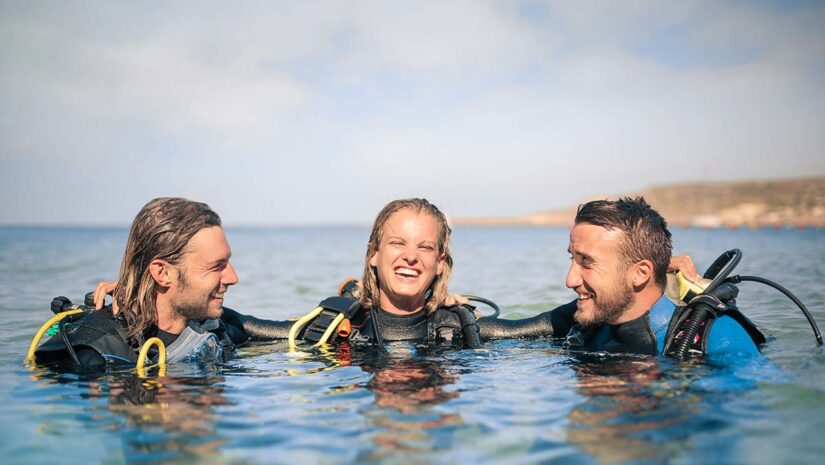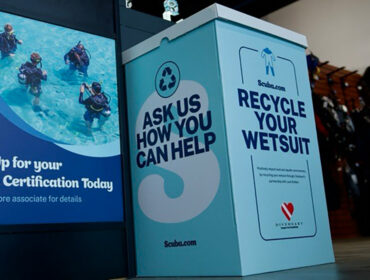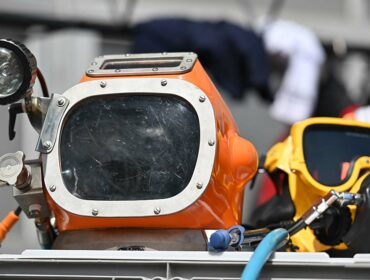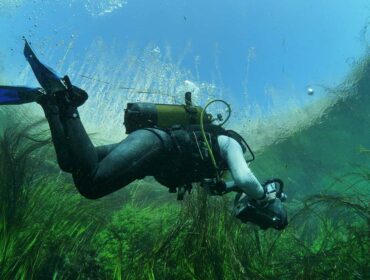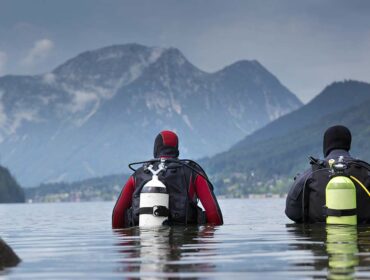It’s important to follow rules while scuba diving in order to stay safe. But the safety practices don’t end when you reach the surface. There’s a few items to think about after the dive too, and several things you shouldn’t do after a dive.
When you’re scuba diving, your body is taking on more nitrogen than it does at the surface. This is because the partial pressure of the nitrogen in the air you’re breathing becomes higher the deeper you go. This is why we always ascend slowly; to give the nitrogen time to diffuse. If we ascend too fast, the nitrogen can form bubbles in the blood, and this is what causes decompression sickness (DCS).
Even though we ascend slowly, there is still some nitrogen left in the body for a while after diving. So there are a few things to think about to avoid getting “the bends” after a dive.
Things You Shouldn’t Do After a Dive
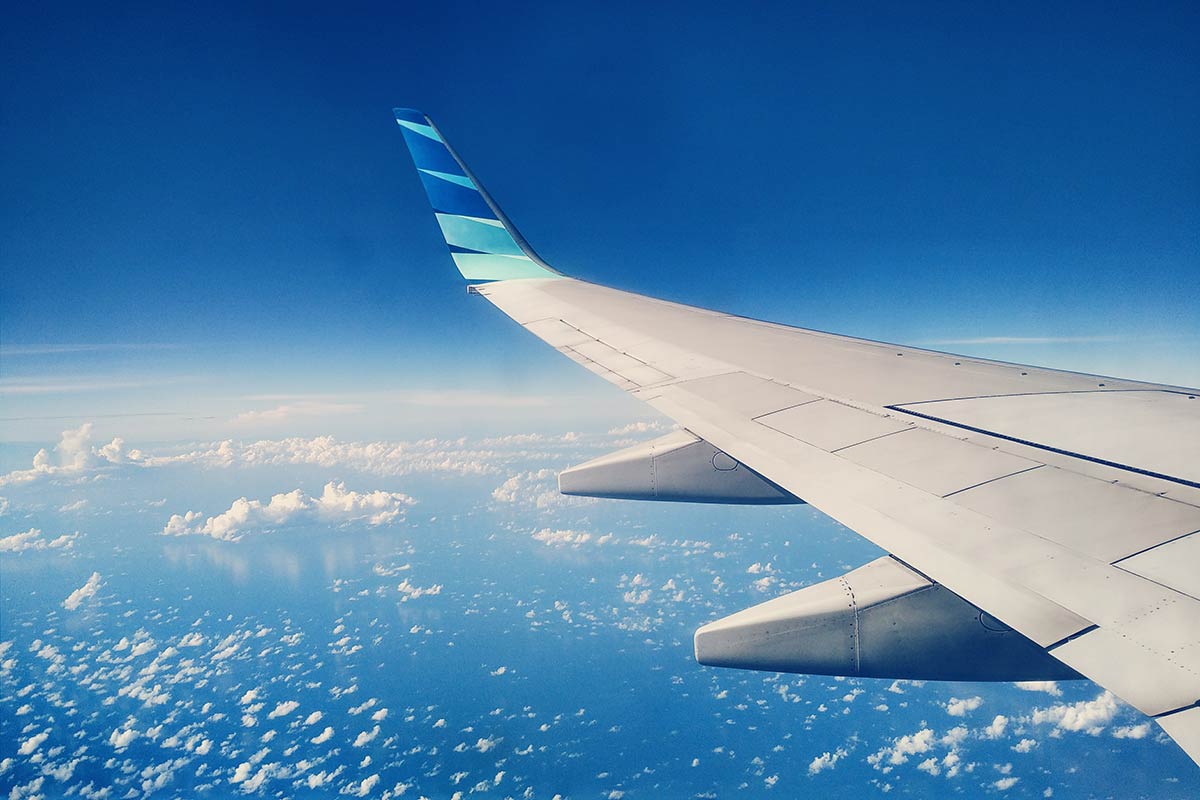
1. Flying in an airplane
Firstly, and probably most importantly, you should not fly after scuba diving. The general rule is considered to be that you should wait a minimum of 12 hours after one no-decompression stop dive, or 18 hours after two or more. Some people like to wait 24 hours, just to be safe. Generally, 24 hours is also the recommended time to wait if you went over your no decompression limit on the dive.
Why? When we go on an airplane and the altitude increases, the air pressure is lower than at sea level. This encourages the nitrogen to expand too quickly (similarly to when we ascend too fast) and we could end up with DCS.
Dive computers have a “no fly” warning that shows up after a dive, it’s important to follow your dive computer and wait to fly until this warning turns off.
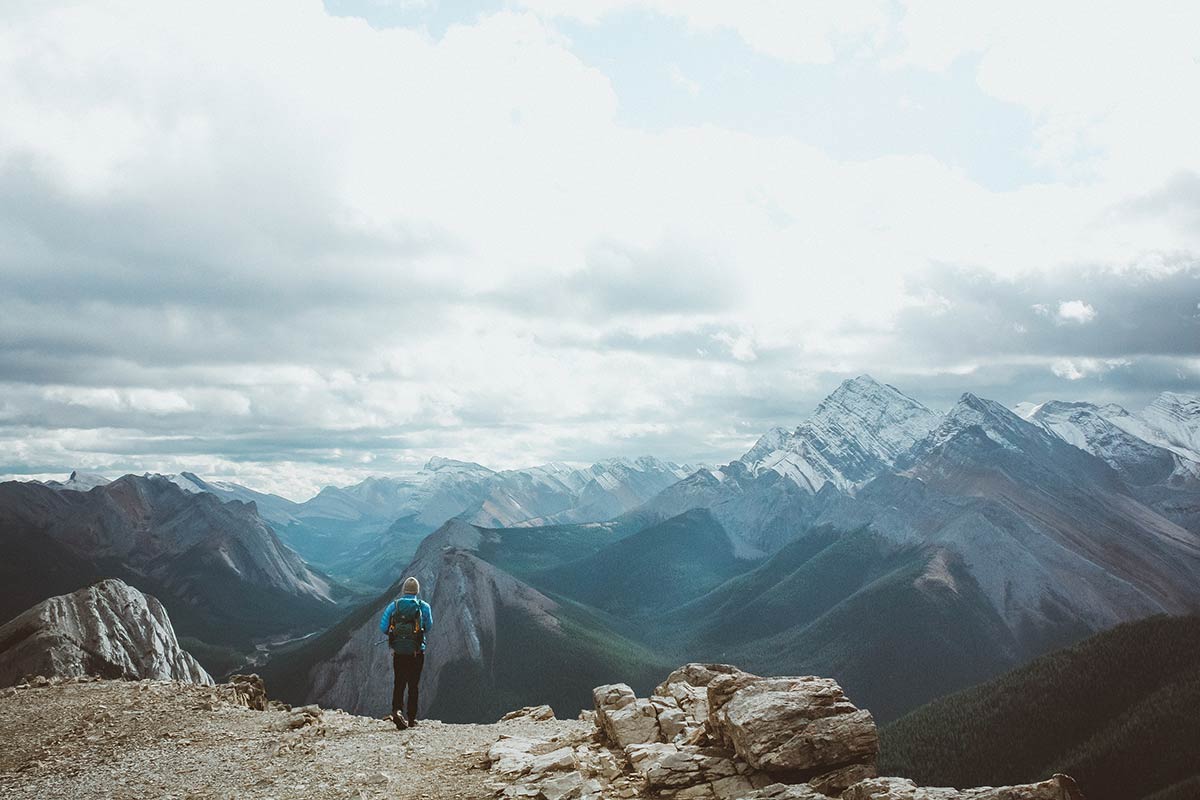
2. Traveling to high altitudes
If you have an action-packed vacation planned, with a mountain hike scheduled for after your dive, you may need to rethink the itinerary.
For the same reasons as flying, traveling to the top of mountains should be avoided after scuba diving due to the high altitude. If the altitude is more than 1,000ft (300m), it’s considered a risk for decompression sickness. This is because altitude this high creates an increased pressure difference between your surroundings and the nitrogen left over in your body from the dive. This causes the nitrogen in your tissues to expand, and that can trigger the DCS.
The general rule is considered to be to wait 24 hours after diving one time or more before traveling to high altitudes. It’s best to play it safe and wait a day before climbing that mountain.
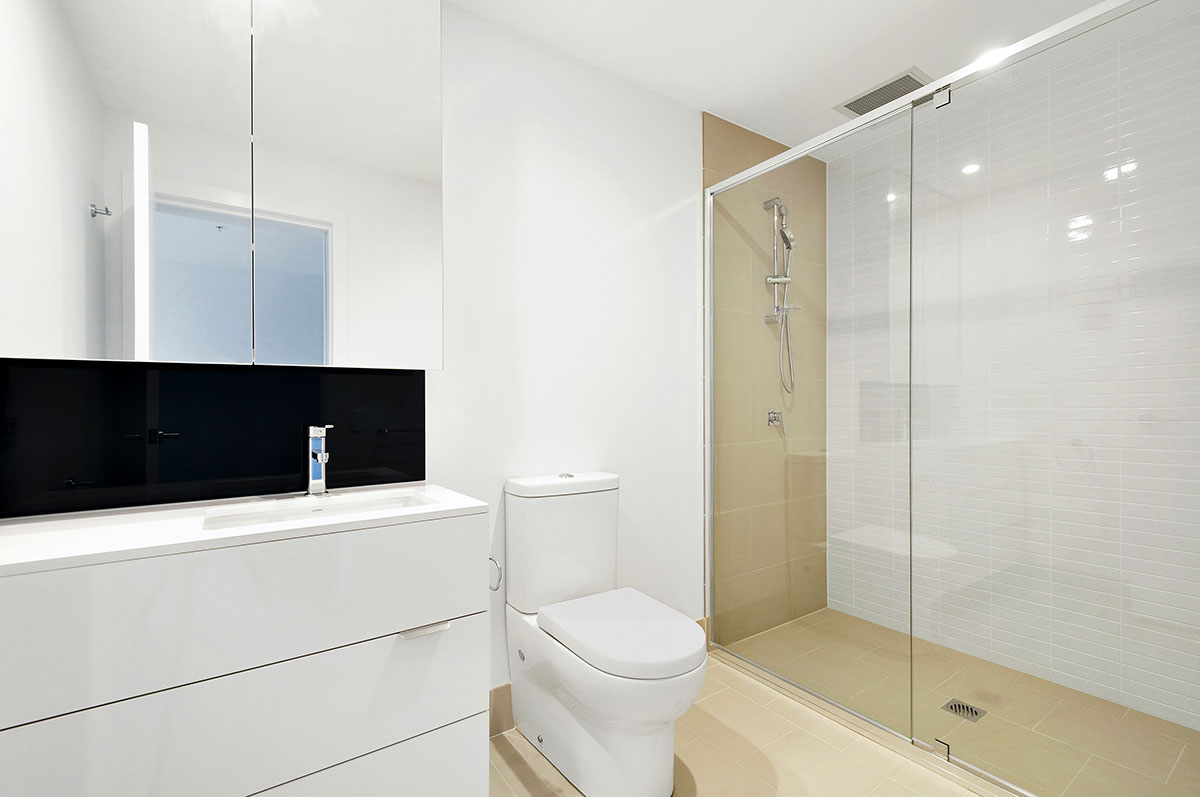
3. Taking a hot shower/bath
After a dive or two, you might be feeling cold and wanting to jump into a hot shower or bath to warm up quickly. But when you are submerged in hot water, your body’s tissues get warm, and this can promote the formation of bubbles, which we know is a danger for DCS. The solubility of a gas is related to temperature. You witness this when you see boiling water — bubbles appear when the water gets hot enough.
There’s no set rules for this one, but DAN (Divers Alert Network) recommends waiting between five to 30 minutes before having a hot shower or bath or getting into a hot tub. They also suggest that if you really can’t wait, try to dive more conservatively to limit the amount of nitrogen in your body after the dive, and have a lukewarm shower rather than a very hot one. The same applies to hot tubs or jacuzzis.
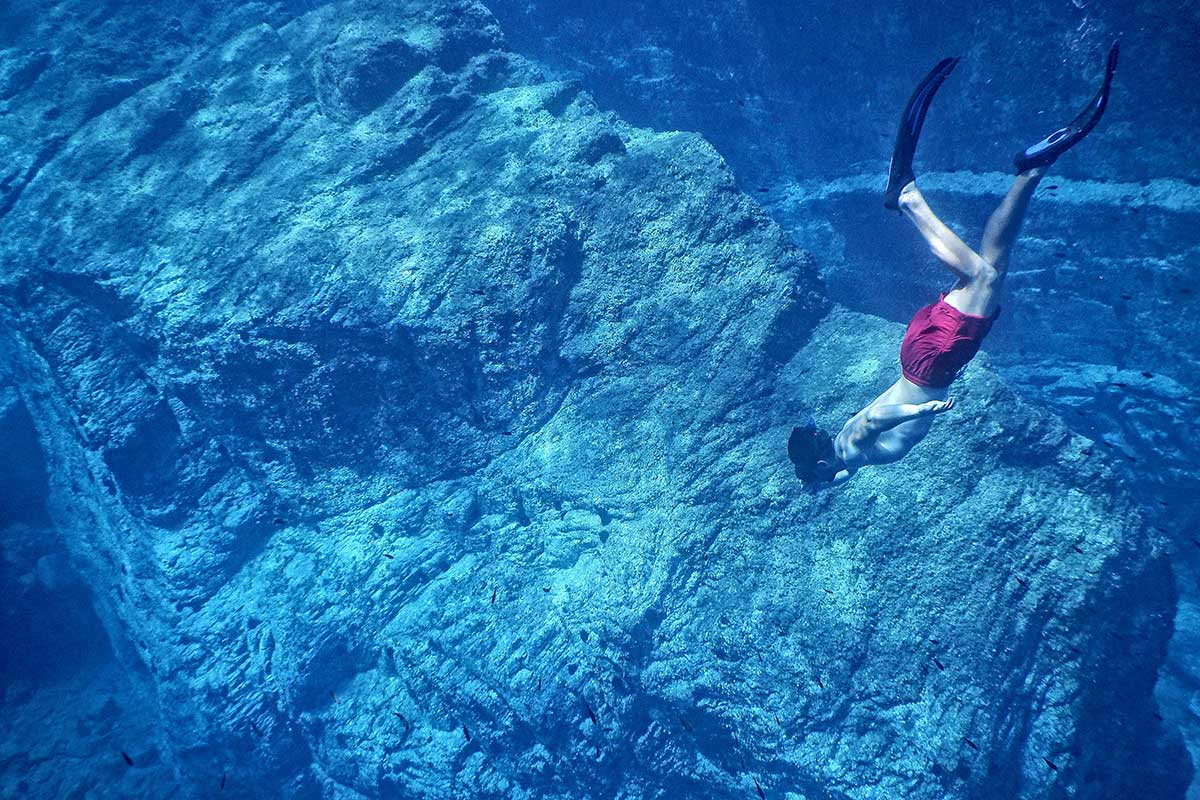
4. Freediving
If you have some training in freediving then you are probably able to dive down a few feet to swim alongside beautiful marine life. But if you’ve been scuba diving that day, it’s best to stay on the surface. There is still nitrogen in your body from the scuba dive and going to depth again and ascending quickly could affect the off-gassing and trigger DCS.
The general rules for this are the same as the rules for flying after scuba: wait 12 hours after one dive, and 18 hours after two or more.

5. Going for a massage
While there hasn’t been much evidence supporting this theory, many scuba divers believe that deep tissue massage straight after a dive, could cause DCS. Massage can increase blood flow, which could cause bubble formation if there’s a lot of nitrogen still in the body from the dive.
Another reason that deep tissue massage could be problematic for scuba divers is, if the massage is very strong it can cause muscle soreness. This is a symptom of DCS and could cause worry and mis-diagnosed DCS. It’s probably better to go for a gentler massage after a dive, just to be safe.
Avoiding these five things after scuba diving can reduce your risk of decompression sickness, and keep you diving happily and safely.
Written by: Charlotte Stringer

